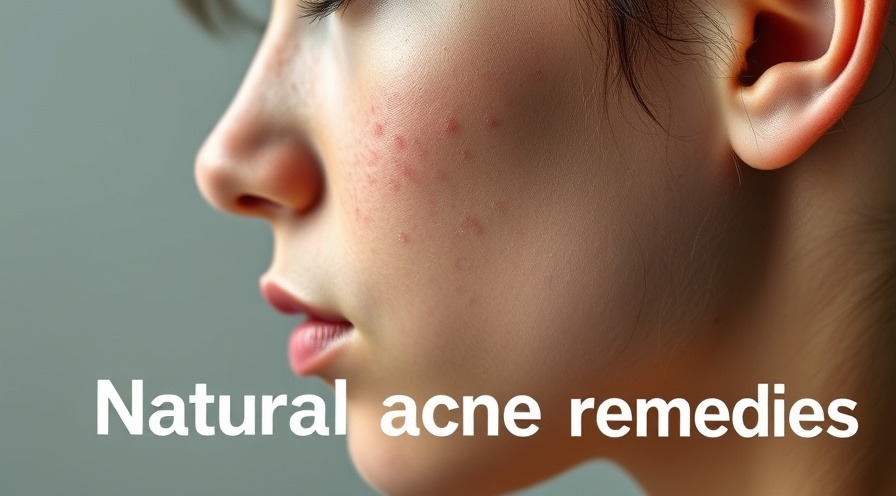
Understanding Eczema and Its Triggers
Eczema, particularly atopic dermatitis, is a prevalent skin condition characterized by dry, itchy, and inflamed skin. This chronic condition can be uncomfortable and often impacts daily life, especially for parents managing it in children. While it's important to note that diet isn't the sole cause of eczema, nutrition can significantly impact inflammation and flare-ups. Certain foods may soothe symptoms and promote skin health, while others could trigger reactions in sensitive individuals.
In 'Dietary Changes to Help Manage Eczema Symptoms for Long Term Relief,' the discussion dives into the link between nutrition and skin health, exploring key insights that sparked deeper analysis on our end.
Foods for Eczema-Friendly Nutrition
Incorporating specific foods into your diet can make a notable difference in managing eczema symptoms. Here are some beneficial options to consider:
1. Omega-3 Fatty Acids: Foods high in omega-3s, like salmon, sardines, and mackerel, have anti-inflammatory properties that can strengthen the skin's barrier. For plant-based sources, consider flaxseeds, chia seeds, and walnuts.
2. Antioxidant-Rich Fruits and Vegetables: Nutrient-dense produce, such as berries, leafy greens, carrots, and sweet potatoes, are high in vitamins A, C, and E. These vitamins support skin protection and help to reduce inflammation.
3. Probiotic Foods: A healthy gut plays a crucial role in skin health. Fermented foods like yogurt with live cultures, kefir, kimchi, and sauerkraut can positively influence eczema by maintaining gut microbiome balance.
4. Whole Grains and Fiber: Including whole grains like oats, brown rice, and quinoa promotes gut health, which may, in turn, reduce eczema symptoms.
5. Hydrating Foods and Fluids: Staying hydrated is key to maintaining skin moisture. Drink plenty of water and enjoy hydrating foods, such as cucumbers, melons, and oranges.
Common Trigger Foods to Avoid
While some foods are beneficial, others may provoke eczema flare-ups in sensitive individuals. It's important to consider avoiding the following:
Dairy Products: Milk, cheese, and ice cream are common triggers for some.
Eggs: A known allergen that can worsen symptoms.
Gluten: Wheat and other gluten-containing grains like barley and rye may trigger reactions.
Nuts: Peanuts and tree nuts are frequent culprits.
Soy Products: Soy can also be problematic for certain individuals.
Practical Tips for Effective Management
Managing eczema through dietary changes can be a practical approach. Here are a few tips to help you navigate this journey:
Keep a Food Diary: Track your food intake and monitor any symptoms to identify personal triggers.
Prioritize Healthy Fats: Opt for healthier fat sources like olive oil and avocado instead of processed oils.
Limit Processed Foods: Sweets and processed items can contribute to systemic inflammation; keeping these to a minimum may reduce symptoms.
Consult a Professional: Always check with a doctor or dietician if you suspect food allergies or intolerances.
Individualized Approach to Eczema Management
Ultimately, there isn’t a one-size-fits-all eczema diet. Each person may respond differently to various foods. Prioritizing anti-inflammatory whole foods while being mindful of individual triggers can lead to improved skin health for many individuals. Whether it's focusing on omega-3s or ensuring adequate hydration, small dietary adjustments can make a substantial difference in managing eczema symptoms over time.
If you're concerned about dietary changes or how they may affect you or your family's health, consider discussing your findings with a healthcare provider. Tailoring an approach that suits your individual needs can be a step toward relief and improved well-being.
 Add Row
Add Row  Add
Add 




Write A Comment